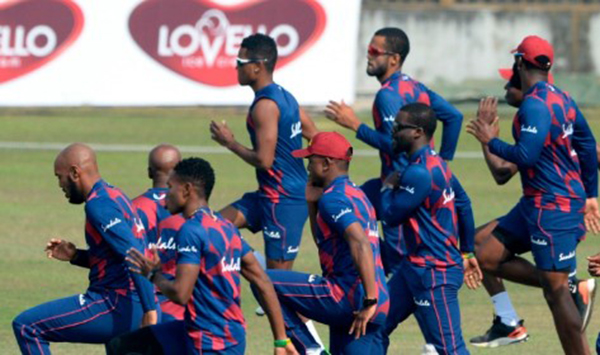BRIDGETOWN, Barbados, CMC – Cricket West Indies president, Ricky Skerritt, has defended West Indies’ recent series whitewash in Bangladesh, pointing to the extenuating circumstances posed by the global COVID-19 pandemic which resulted in a weakened squad being sent to the south Asian country.
West Indies slumped to an emphatic 3-0 defeat in the One-Day International series which ended Monday after producing a series of sub-par performances.
The Caribbean side, who also face the hosts in two Tests starting next Wednesday, were hard hit by the withdrawal of 10 first choice players over what CWI said was due to “COVID related concerns or personal fears” over the health situation in Bangladesh.
“How do we solve the COVID-19 problem where we can’t get all of our players playing at the same time and we have to field players, in some cases who have not played together before,” Skerritt said in an interview on Starcom Radio’s Mason and Guest here.
“COVID-19 is a reality that some of us don’t seem to understand. We have to face the reality that players are facing tremendous stressful decisions about their career and whether they’re participating in cricket under risky situations, even though Cricket West Indies and other boards are doing everything and more to minimise the risk.
“Tell me what would you do different to get the best players on the park when many of the players are reluctant to travel and choose not to play? Are you going to punish them? Are you going to say ‘if you don’t play, you’re not going to play again ever?’ Then you lose them forever?”
He continued: “I’ve listened to some of the discussions about COVID and I wonder if we believe that COVID only affects us individually, and only us are fearful but players and others shouldn’t [be].”
Among the 10 players declining selection for the Bangladesh tour were Test captain Jason Holder and ODI skipper, Kieron Pollard. They were joined by high profile players like Darren Bravo, Roston Chase, Shimron Hetmyer, Nicholas Pooran and Shai Hope, who formed the core of both the Test and one-day units. Under its policy relating to touring amid the ongoing pandemic, CWI has allowed players the option of declining selection without any penalties attached. Skerritt said while players had chosen not to tour for the two previous series in England and New Zealand, the Bangladesh tour had seen the highest number of players opting out.
“What has happened with this particular tour and the two tours before which were held during COVID in difficult, challenging health risk situations, is that you could not get all of your best players on tour at the same time and this particular trip to Bangladesh was even worse,” he explained.
“Because we had more players than perhaps we had expected pulling out, and that might have to do with various things but the fact is they didn’t play.
“So the fact is we had a team that was significantly weakened in a situation where even our best teams have lost in Bangladesh over the last several years. Since 2014, we have not won an ODI tournament [away to] Bangladesh – let’s look at the facts.”
He continued: “So we’re going to play against Bangladesh in conditions where most West Indies don’t like playing in because the ball turns, the pitch is a little bit flat and not always great for batting.
“So we take not our strongest batting team and the batting team fails.” West Indies were forced to field seven debutants in the opening ODI which they lost by six wickets, after managing to post only 122.
There was one more debutant in the second ODI in which West Indies suffered a seven-wicket defeat after tallying 148, and another two debutants for the third match which the Caribbean lost by 120 runs following another meagre total of 177, in pursuit of 298.
Skerritt said it was evident from the performances that the side had not been up to scratch, especially with the new players coming in short of match practice due to the ongoing pandemic.
“I think we bowled very well, I think we fielded well. I’m not talking as a coach or a selector – I’m talking simply as a fan,” he noted.
“And as far as I am concerned, the players gave their best but the best clearly was not good enough for that level of cricket, bearing in mind that these were players who a lot of them had not played any cricket recently and certainly were not match-ready.”










